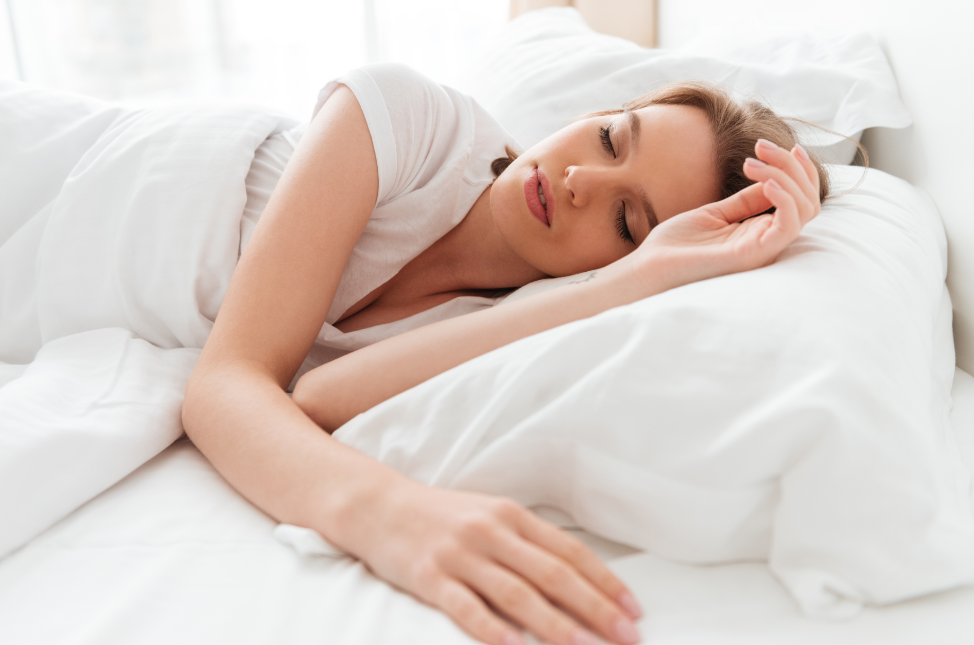
Sleep is overrated, right? How often do you hear someone utter that sentence when rushed with a deadline?
It turns out that sleep is, in fact, underrated. It’s one of the most important things we do in our lives, even when we only think of it as a waste of time because we were conditioned to do so.
Let’s explore the connection between sleep and quality of life.
More energy
The first thing you notice when you get a good night’s sleep is how much more energized you feel. Sleep is when our bodies replenish themselves, and not getting enough sleep can lead to chronic fatigue and all sorts of health issues. Obesity, diabetes, heart disease, and mental health challenges can all occur when you don’t sleep enough.
Improved focus and cognitive abilities
Ever notice how sluggish and slow you feel when you don’t get enough sleep on just one night? Imagine what a series of nights like that can do to your mind.
Sleep promotes focus and cognitive functions, as our brains get to rest and recuperate while we’re sleeping. When you deprive your brain of that, it simply can’t function as you expect it to.
This sluggishness and slowness can also lead to all kinds of frustrations, which will impact your mood and raise your stress levels.
Less stress
While we’re on the subject of stress, not getting enough sleep can lead to hormonal disbalances, causing an increase in the production of the stress hormone cortisol. In turn, you will not only feel more stressed (which is bad enough on its own), but you’ll also be storing more fat and have trouble controlling your appetite.
This can lead to unwanted weight gain, which is then the gateway to other diseases we’ve mentioned.
Improved immune system functions
Your immune system depends a lot on the health of your gut, and if you tend to overeat when you’re stressed out, this health will be compromised. The raised stress levels will also put your body into fight-or-flight mode more often, so your immune system will be compromised as a result of both of these processes.
Not to mention that in order to keep your immune system going, you simply need those seven hours of rest, at least.
Better performance
Contrary to popular belief, staying up to do something will not make that something go better. Quite the opposite: if you stop to rest and resume the task after a break or a night’s sleep, you will be much more productive, much more creative, and the task will also get done in much less time than if you were to push on past all endurance.
How to improve your sleep
An important fact to note is that getting enough sleep is not enough. The quality of sleep matters just as much, if not more.
Here are some ways to help yourself sleep better at night:
- Don’t look at a screen before going to bed. The artificial blue light of screens keeps our brains active, resulting in trouble falling asleep.
- Establish an evening routine. Do the same soothing and relaxing things in the same order each night before you go to bed, in order to tell your brain it’s time to wind down and go to sleep.
- Make sure your bed is comfy. Sleeping on a bed you don’t like can cause you to keep tossing and turning throughout the night. Even though it feels like you’re sleeping, you won’t actually be getting enough rest. Find a mattress, pillow, and blanket that work for you, and maintain them well.
- Breathe through your nose. Breathing through your mouth does not promote deep sleep, so learn how to breathe through your nose while sleeping.
- Keep the room at the right temperature. While you may believe the room needs to be super warm to help you sleep, it should actually be on the cooler side. You won’t sleep as well if you’re hot and sweaty under the covers.
- Go to bed on time. If you know you need to be up at a certain time, calculate how much sleep you need (seven to nine hours is what most people need) and how much you will need to fall asleep, and go to bed accordingly.
Final thoughts
On a bigger scale, the way we live can only change for the better once we give up our modern-day fascination with working too long and too hard. We need to start looking at our health as the most important aspect of our lives. And a major part of that lies in making sleep our biggest priority.
Written by Hannah Thomas
About the Author
Hannah Thomas is a gardening and home décor enthusiast. Garden is the place where she feels most comfortable, that’s why there are always a lot of books and empty coffee cups on the back porch. Always learning, exploring and smiling.
You may also like
7 Reasons Sleep Is Key to Your Mental Health
The Impact of Sleep On Your Immune System
How to Enjoy Your Life Through a Better Sleep
